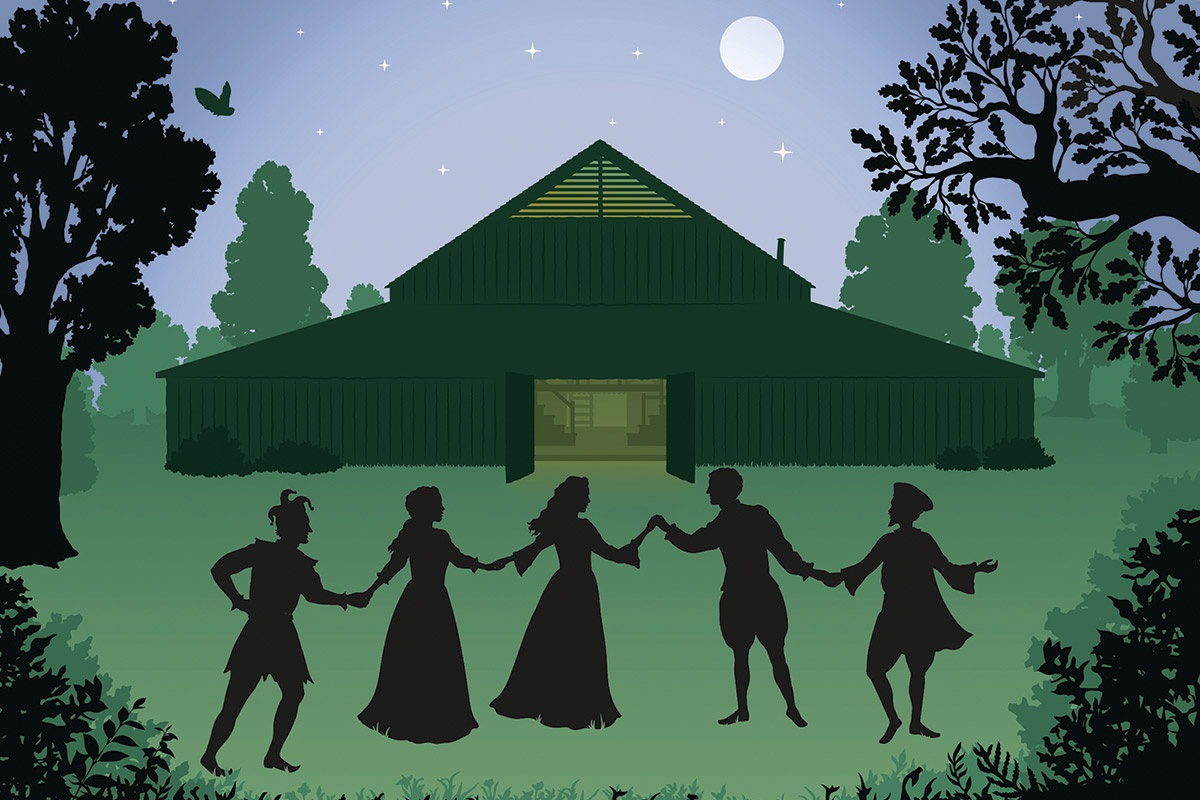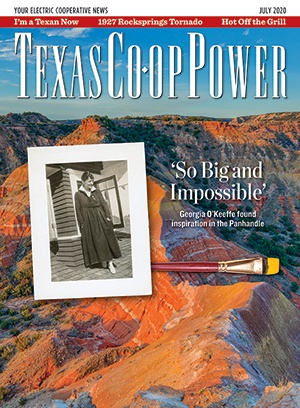There are some invitations so enticing that to say no would be a snub to life itself. That’s the kind of invitation James Ayres, then a Shakespeare professor at the University of Texas, received from Miss Ima Hogg at a luncheon in October 1970 at the Winedale Historical Center near Round Top.
Hogg, the daughter of 19th-century Texas Gov. Jim Hogg and the benefactor who donated the Winedale property to the University of Texas, asked Ayres an innocent question: “What do you do?”
“I told her I taught Shakespeare,” says Ayres, now 86. Ayres sat next to Hogg at the luncheon and explained how many of the barn’s features reminded him of Shakespeare’s Globe Theatre in London. “She asked me to go into the theater barn and have a look around.”
“Well, I want you to do Shakespeare here,” she said. Ayres said he would, and that was the beginning. “I was back with my fall class in November, and we did Much Ado About Nothing,” he says.
Because Ayres answered yes to Hogg’s request, we have the celebrated program—which this year marks its 50th anniversary—in which two dozen college students take up residence in Winedale for six weeks, live their way into three Shakespeare plays and then perform them in the barn. We also have the program’s many offshoots, such as Camp Shakespeare, a summer program for kids ages 11–16, and a loyal community of Winedale alums who have been affected—often in the most powerful of ways—by their time in the barn.
I know because I was a student at Winedale in the summer of 1990.
Doc, as we call Ayres, follows his uncanny intuition for matching each student with the Shakespeare character who he believes has the most to teach us. The part of Rosalind from As You Like It went to the brilliant overachiever, who, from the challenge of the role, would have to swallow the taste of imperfection. Falstaff from Henry IV, Part 1 went to the rebel student who needed to learn the risks of a life of Falstaffian self-indulgence.
And I was given the role of Duke Senior, an aristocrat exiled from the court in As You Like It, who claims that camping out in the forest of Arden beats a life of “painted pomp” in courtly society. When I was 20, his pithy monologue to his “co-mates and brothers in exile” who follow him out to the woods became my innermost manifesto on how to approach life. That summer, I shouted it to the cows I passed while on bike rides along Round Top’s country roads. I belted it out in the woods near the barn with my Winedale co-mates as we garlanded our torsos and arms in pretty vines, only to find out that it was poison ivy and we would all need cortisone shots.
Duke Senior’s speech became a defining theme for us that summer—particularly the lines, “Sweet are the uses of adversity, / Which, like the toad, ugly and venomous, / Wears yet a precious jewel in his head.”
How my fellow exiles and I struggled to embrace those words as we itched our poison ivy welts, or when another co-mate wasn’t pulling his weight in the sewing room where we made our costumes, or when a lead character couldn’t get her lines right because she’d been goofing off. Adversity sunk like a stone in our guts when Doc lectured us, exhausted after a late practice, that we weren’t working as a team.
But in the end, the adversity built into the Winedale experience was exactly what we needed. Most of us found our own jewels in the toad, learning that the sweetness comes when you take risks and play and throw yourself into it—not just for yourself, but with a collective of co-mates, exiled or not. When the “icy fang” of winter makes you “shrink with cold,” the Duke told us, “This is no flattery: These are counsellors / That feelingly persuade me what I am.”
Shakespeare at Winedale, for so many of us, persuaded us to become what we are, what we are capable of. And many, like me, have lived richer lives because of it.
My Duke Senior speech is now as much a part of me as my kidneys and liver. I’ve been reciting it for 30 years—by campfires with college friends, at my wedding and my 50th birthday, and to my children, who don’t quite get it yet. It will likely be a part of my last rites. Perhaps there is not sweetness in all forms of adversity, but I admire Duke Senior for seeking it out. Virtue, honorable leadership and a positive yet grounded worldview are all qualities he possessed and is still offering us 400 years after Shakespeare created him.
This world needs Duke Senior. I certainly do.
Clayton Maxwell is an Austin-based writer whose friends still humor her by listening to her Duke Senior speech.


